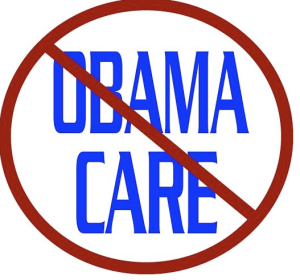
BY MICHAEL D. TANNER – “History repeats itself — first as tragedy, then as farce,” noted Karl Marx. With the new Republican majority in the House planning to vote next Wednesday on repeal of Obamare, Democrats appear well into farce.
Throughout the debate over health-care reform, Democrats constantly told us (and themselves) that if only they could explain the bill better, Americans would come to understand how good it was for them.
So President Obama went out and gave more than a hundred remarks, speeches, press conferences, and town-hall orations. But somehow voters resisted the president’s silver-tongued oratory. The more the president talked, cajoled, and explained, the greater public opposition to the bill grew. That January, voters in Massachusetts sent Scott Brown to the Senate largely on the basis of his promise to vote against Obamacare.
But Democrats were undaunted. They knew that once the bill finally passed the public would love it. As Washington Post columnist Ezra Klein predicted, the bill would “become more popular after passage than it was before passage.” New York senator Chuck Schumer summed up the Democratic argument, “Once it passes, it’s going to become more popular — because the lies that have been spread, they vanish, because you see what’s in the bill.” The bill passed. The public saw what was in it. The public hated it.
But surely, Democrats said, when the bill’s consumer protections go into effect in September, then the public will come around. “People don’t know all the nuances of this thing,” said Sen. Tom Harkin, “Bit by bit, we’ll get it out there. Ten people will know, then it’ll grow to 20, then it’ll grow to 80, and it’ll have a snowball effect.” White House adviser David Axelrod echoed the sentiment. “I think that health care, over time, is going to become more popular,” he told Meet the Press. But, September came and went, the new rules went into effect, and the bill didn’t become more popular.
So the Democrats decided that the public was a bunch of dolts who were “scared” and “not thinking clearly,” in the words of President Obama. Then Democrats headed off into the November elections, in which every Republican running for an office higher than dog catcher was campaigning in favor of repealing the bill. Those doltish voters overwhelming rejected Democrats who had supported the health-care bill, giving Republicans one of the biggest midterm election victories in more than 60 years. A post-election survey found that 45 percent saw their vote as a specific message of opposition to the health-care bill.
Now, Democrats say they are anxious for another debate over health-care reform, because it will give Democrats an opportunity to explain the bill — again. And this time, no matter how dense the public has shown itself to be so far, the voters will finally get it, rise up, and punish Republicans for trying to undo the Obama administration’s signature achievement. According to the New York Times, Democrats “see the renewed debate as a chance to show that the law will be a boon to millions of Americans and hope to turn ‘Obamacare’ from a pejorative into a tag for one of the president’s proudest achievements.”
Given that the latest Rasmussen poll shows that 60 percent of likely voters support repeal, Democrats might have an only slightly harder time convincing the public to pardon Osama bin Laden, and they continue to labor under the delusion that the problem with health-care reform isn’t policy, but public relations. Americans oppose the health-care program because they don’t understand it. Sooner or later, the thinking goes, they will find the magic words that will convince the public of how right the Democrats have been all along.
They understand that outside experts now predict that Obamacare will cost at least $2.7 trillion over its first ten years of actual operation, not the $950 billion originally predicted, adding more than $350 billion to the deficit over that period, despite massive new taxes.
They’ve seen their insurance premiums skyrocket in response to the law’s new mandates and regulations. Their common sense tells them that imposing the employer mandate will increase the cost of hiring workers and mean fewer jobs at a time when unemployment is still a national crisis. They oppose the unconstitutional individual mandate as an assault on their personal liberty. And they are rightfully concerned over how the law will affect the quality of the care they receive.
That’s not a situation likely to enhance Obamacare’s popularity.
Sure, there are some consumer reforms in the bill that are at least superficially popular. But even those come with fine print. For example: Starting today, parents will be able to keep their children on their insurance plans until age 26. Democrats imply that that extended coverage is free. But, in reality, the Department of Health and Human Services estimates that it will cost an estimated $3,380 a year per child. And since employers are balking at picking up the added cost, the parents themselves will have to pay more if they want to continue their children’s coverage. Democrats will also point out that insurers can no longer refuse coverage to children with preexisting conditions.
True: And in response, insurers in Colorado, Ohio, and Missouri, among others, have stopped offering child-only insurance plans, depriving thousands of Americans of an inexpensive coverage option. Insurers are also prohibited from imposing annual or lifetime coverage limits. But this provision has proved so onerous that the administration has been forced to issue more than 100 waivers to prevent companies from dropping their employees’ coverage altogether.
Democrats claim that they welcome a fight over repealing Obamacare. Republicans should welcome the opportunity to give them one.
Michael D. Tanner is a senior fellow at the Cato Institute and author of Leviathan on the Right: How Big-Government Conservatism Brought Down the Republican Revolution.

